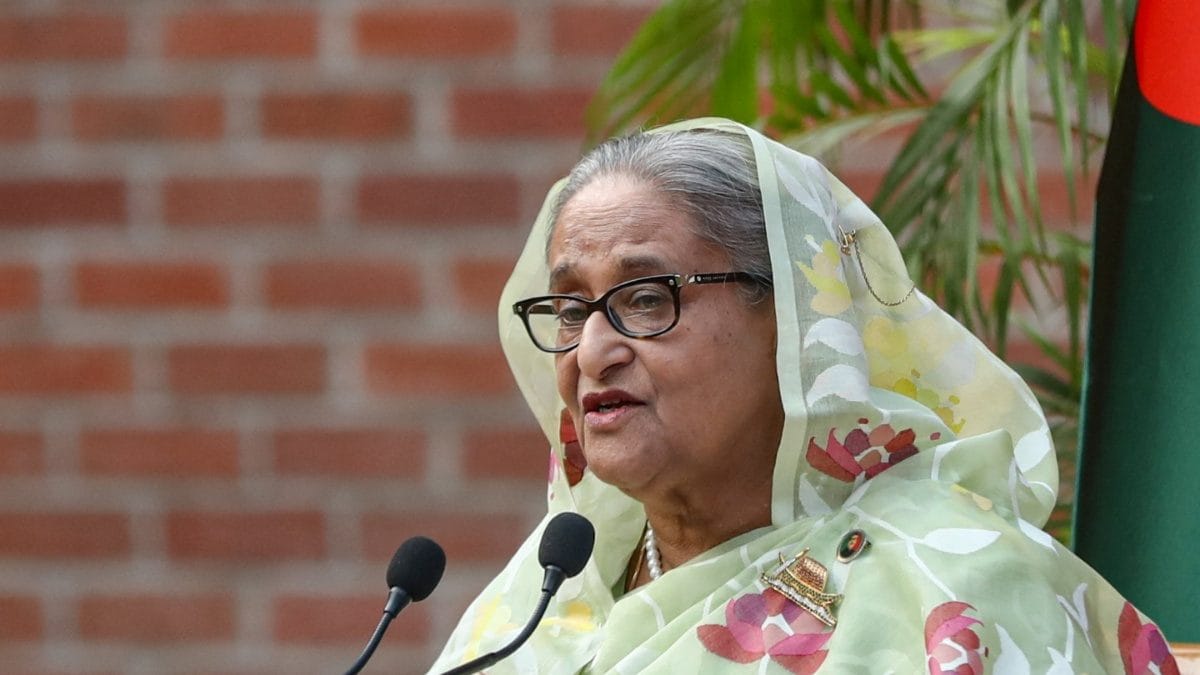Last Updated:January 08, 2025, 19:19 IST
A former Bangladesh Army officer turned terrorist who has been convicted, Major Zia is accused of orchestrating heinous extremist activities and poses a significant threat to regional stability

Bangladesh’s interim government head Muhammad Yunus (AP file photo)
Controversy has erupted in Bangladesh as reports surfaced that the interim government, led by Nobel Peace Prize laureate Muhammad Yunus, is considering the release of Syed Ziaul Haque, alias Major Zia.
A former Bangladesh Army officer turned terrorist, Major Zia is accused of orchestrating heinous extremist activities and poses a significant threat to regional stability.
THE DARK LEGACY
Once a decorated officer in the Bangladesh Army, Major Zia transitioned into infamy as a leader of Ansar al-Islam, the Bangladesh wing of Al-Qaeda.
Over the years, he has forged ties with other extremist organisations, including Jamaat-ul-Mujahideen Bangladesh (JMB), Al-Qaeda in the Indian Subcontinent (AQIS), and even ISIS.
His name is linked to the 2011 failed military coup in Bangladesh and a spate of gruesome murders targeting secular bloggers and intellectuals, earning him a death sentence in absentia.
His key convictions include:
The murder of Avijit Roy, a prominent writer, and publisher Foyasal Arefin DiponThe assassination of secular blogger Niladri Chattopadhyay NiloyAllegations of conspiring to destabilise both Bangladesh and its neighbour, India, through cross-border militancy and propaganda.THE CONTROVERSY
Reports suggest that Major Zia, who has been a fugitive for 14 years, applied to Bangladesh’s Ministry of Law and Home Affairs for clemency. He has also written to the U.S. State Department to withdraw his name from international terror lists. Critics allege that the interim government plans to pardon him, echoing its controversial stance on other convicted militants.
This alleged move has ignited outrage, with political analysts, security experts, and civil society leaders questioning the motivations of the Yunus-led administration. Opponents argue that such a decision could embolden extremist factions and jeopardise the nation’s hard-won progress in combating terrorism.
IMPLICATIONS FOR INDIA
Major Zia’s speeches and communications frequently target India, accusing it of interfering in Bangladesh’s sovereignty, while also disseminating anti-India propaganda through militant networks and social media platforms.
Bangladeshi intelligence reports highlight his role in coordinating cross-border movements of militants between Bangladesh and India, as well as his collaboration with anti-India militant groups such as Lashkar-e-Taiba (LeT) and JMB to destabilise Indian security. His connections to Pakistan’s Inter-Services Intelligence (ISI) have facilitated funding and organising operations against India, including providing logistical and financial support to groups like the United Liberation Front of Assam (ULFA).
Major Zia has also been implicated in plots to assassinate Indian diplomats in Dhaka, which were foiled through joint efforts by Bangladeshi and Indian intelligence. Additionally, he has reportedly attempted to sabotage India-Bangladesh infrastructure projects, including critical cross-border trade routes.
GLOBAL AND DOMESTIC OUTCRY
The alleged plan to release Major Zia has sparked condemnation both within Bangladesh and internationally. Observers fear it could undermine the country’s counter-terrorism efforts and strengthen the grip of radical groups. “This is not just a threat to Bangladesh, but to the entire region," said a senior Indian intelligence official.
With mounting pressure from critics, the Yunus government is yet to confirm or deny the reports. However, the looming spectre of Major Zia’s potential release has thrown a shadow over Bangladesh’s commitment to combating extremism and safeguarding regional stability.
Location : First Published:January 08, 2025, 17:44 IST
News world Will Bangladesh’s Yunus Government Release Terrorist Major Zia? Reports Spark Row

 16 hours ago
16 hours ago













